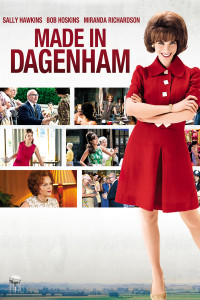I am fortunate that my work provides me with countless opportunities to work with teams. One of the activities that I enjoy facilitating is asking the participants to form small groups and to name the characteristics of the effective and ineffective teams of which they have been members.
 Examples can come from any team experience and I encourage participants to broaden their thinking about their definition of a ‘team’. Some examples of this definition include:
Examples can come from any team experience and I encourage participants to broaden their thinking about their definition of a ‘team’. Some examples of this definition include:
- A workplace
- A family
- A university study group
- A sporting team
- A community group
- Traveling with friends or family
After providing the participants with enough time to share their stories, I collect the results.
An interesting characteristic that always comes up for effective teams is trust. Similarly, a lack of trust is always raised as a characteristic of ineffective teams.
Trust. Easy to say. Hard to give.
Why? It is my view that trust involves a willingness to be vulnerable. In a team environment, to trust your team members means that you have faith that they will do what they say they will do to the best of their ability. When I ask program participants to describe what it was like to be trusted, they say things like:
“He never looked over my shoulder. Even though it was the first time I was doing this task, he asked if I needed any further help and I said that I didn’t. He told me that I could contact him at any stage if my circumstances changed. If I were him I’m not sure that I could have trusted me like he did. And that was special. I think I actually did the job better because I was trusted. I found it really motivating.”
“She was the leader, there was no question about that. But when we allocated tasks and she was clear that we understood what needed to be done, she let us ‘go for it’. Her door was always open and we knew that, and from time to time we would go to her for help, either physically or via email or on the phone. She was always available when we needed her. But she never, ever behaved like she didn’t trust us. It never felt like she was looking over our shoulder making sure we did it exactly how she would. And this was an important project. And we knew that, and we respected that. That’s why we created such a wonderful result. We were a real team and she trusted us!”
You can’t fake trust. It is either genuine, or it isn’t. In today’s complex world it is nearly impossible to ‘go it alone’. Leaders have to trust their team members to do their job, even if the leader could do parts of the job ‘better’ on their own.
To trust, however, requires the leader to be okay with being vulnerable. Trust can’t be broken if it isn’t given. Genuinely trusting someone means that you are prepared for the possibility that they might break your trust, which in turn makes you vulnerable.
In our world of accountability and responsibility, trust can become very hard to ‘give’. If I’m the leader, the ‘buck stops with me.’ If this project fails, then it’s my fault.
Trust is complex, isn’t it!
I doubt there is any golden rule with regard to trust. I am a trusting person, but I am not prepared to trust ‘just anyone‘. I use all my ‘three brains’ (I’ll explain what that term means in a future article) to decide whether I will trust someone or not.
Each time I trust someone I am conscious of the choice that I have just made. Trust is behavioural, so saying, “I trust you” means nothing, if all I do is look over your shoulder every step of the way. Being prepared to be vulnerable is a tension leaders have to grapple with.
Are you prepared to be vulnerable?
What are your experiences of trust both as a team member and as a leader?
How have you managed the ‘vulnerability‘ tension?
The chances are that if trust is not present in the right circumstances, then high performance is unlikely.
What is the bigger risk; the preparedness to be vulnerable and to risk achieving high performance or the preparedness to be ‘safe’ and therefore achieve under-performance?
Gary Ryan enables organisations, leaders and talented professionals to move Beyond Being Good.
Want to share this post? Here is a ready-made Tweet:
Click to Tweet: As a leader how willing are you to be vulnerable? http://ctt.ec/pjntd+


